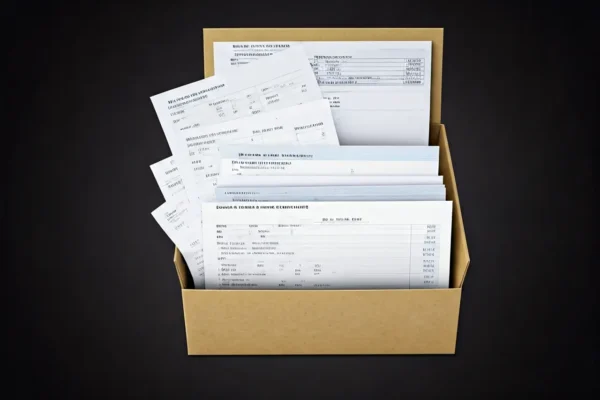In the world of business, maintaining a healthy cash flow is crucial, and credit control plays a vital role in this process. But what exactly is credit control, and why is it so important for businesses? This FAQ blog will break down the concept of credit control, explain its significance, and guide you on how to effectively implement it in your business strategy.
Understanding Credit Control: An Overview
Credit control is the system used by businesses to ensure that customers pay on time and that outstanding debts are collected promptly. It involves setting credit limits, monitoring credit accounts, and ensuring timely payments. This process is essential for maintaining a healthy cash flow and minimizing the risk of bad debt.
At its core, credit control serves as a guardrail for a business’s financial operations. By having well-defined credit policies in place, businesses can navigate through financial transactions smoothly, ensuring that they are not caught in the web of delayed payments and financial uncertainties.
You might wonder how businesses decide who gets credit and who doesn’t. This decision often depends on factors like a customer’s credit history, current financial situation, and their relationship with the company. By analyzing these elements, businesses can tailor their credit control policies to suit the risk profile of each client.
Additionally, credit control isn’t just about collecting debts. It’s about building a system that prevents overdue invoices and detects payment issues early on. This enables businesses to offer tailored solutions to clients, such as revised payment schedules or early payment discounts, thus maintaining a positive business relationship.
Why Is Credit Control Important for Businesses?
Effective credit control is critical for a number of reasons. It helps maintain cash flow, minimizes risk of bad debt, improves financial planning, and strengthens customer relationships. By ensuring timely customer payments, businesses can meet their own financial obligations and invest in growth opportunities.
Cash flow is the lifeblood of any business, and credit control serves as a critical component in its management. With a solid credit control policy in place, companies are better equipped to predict their cash positions, allowing for strategic planning and growth.
Beyond just financial stability, credit control enhances your company’s credibility and reputation. Customers are more likely to trust and engage in business with a company known for its organized and effective financial management.
Key Strategies for Effective Credit Control
Implementing robust credit control usually involves creating credit policies, conducting credit checks, establishing clear payment terms, and regularly reviewing credit limits. Keeping communication open with clients and using automated systems can also enhance the efficiency of the credit control process.
For instance, setting up a detailed debtor management system can significantly improve the timeliness of payments. This system can track upcoming due dates and send reminders, reducing the chances of late payments.
Moreover, using technology to automate and streamline credit control tasks can free up time for more strategic financial planning. Automated systems can offer real-time insights, helping businesses make informed decisions swiftly.
It’s equally important to have a dedicated team handling credit control. They can focus on building and nurturing customer relations, ensuring credit policies are adhered to, and effectively managing any issues that arise.
Common Challenges in Credit Control and Solutions
Businesses often face challenges such as late payments, disputes over invoices, and client’s inability to pay. Solutions include establishing clear communication, offering payment plans, and employing credit insurance. Regularly updating credit control policies and having a dedicated team can also be beneficial.
Late payments are one of the most common challenges in credit control. Businesses can combat this by establishing a clear credit control process, which includes well-documented credit terms and proactive communication with clients.
To handle disputes over invoices, it’s essential to maintain a transparent and open line of communication with clients. Regular follow-ups and clarifying the terms of service before onboarding can prevent disputes from arising.
Finally, having safeguards like credit insurance can protect a business from major financial setbacks. Credit insurance covers potential losses that might arise from clients who default on payments, ensuring business stability even in challenging times.
The Role of Credit Control in Business Success
In conclusion, credit control is an integral part of a business’s financial strategy, ensuring stability and growth. By managing credit effectively, businesses can maintain cash flow, reduce the risk of bad debts, and build stronger relationships with clients. Implementing the right strategies in your credit control process not only safeguards your business’s financial health but also sets the foundation for long-term success.







